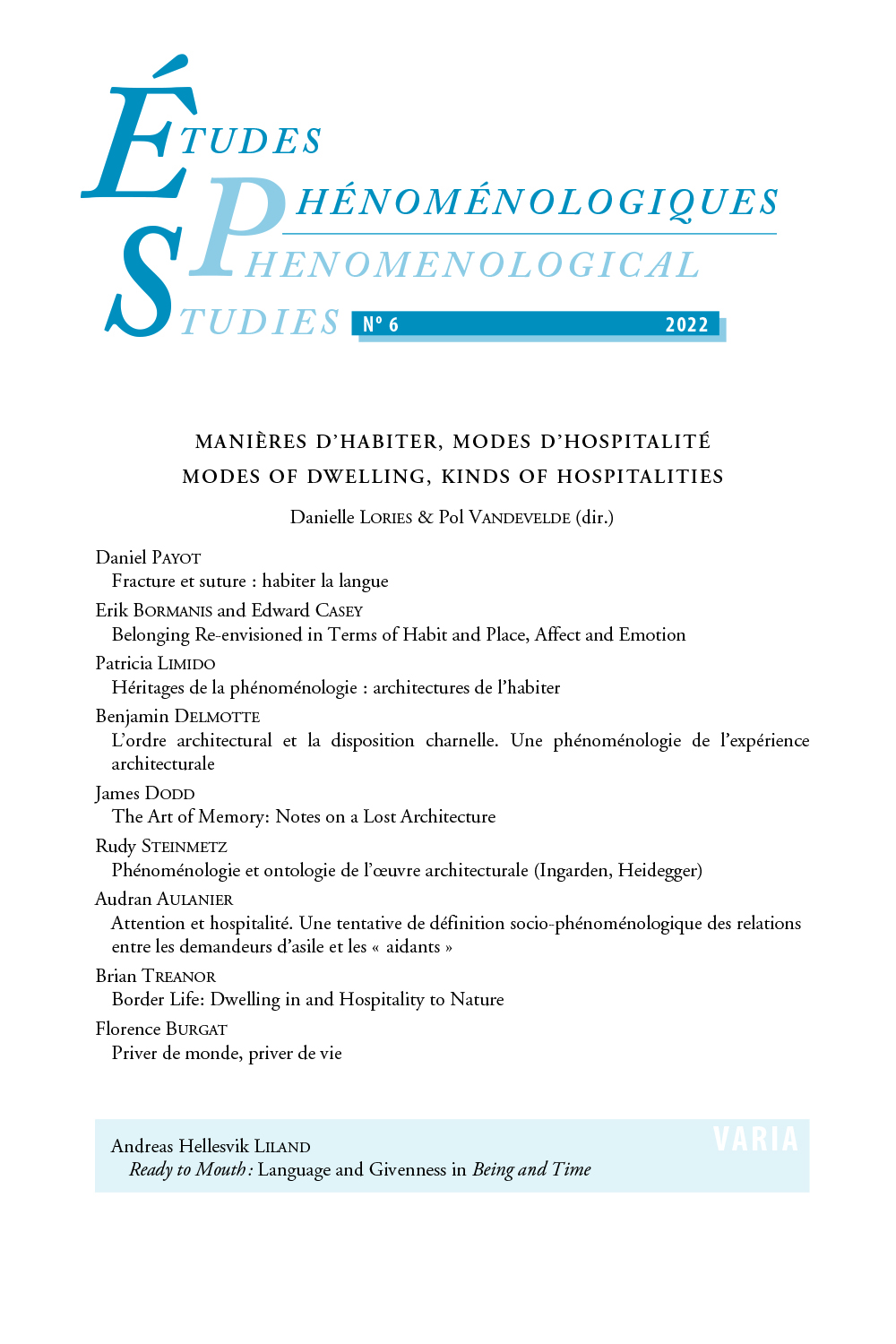 previous article in this issue previous article in this issue | next article in this issue  |

Preview first page |
Document Details : Title: Sexual Meaning and Social Pathology Subtitle: Merleau-Ponty contra Sartre Author(s): RUKGABER, Matthew Journal: Etudes phénoménologiques - Phenomenological Studies Volume: 4 Date: 2020 Pages: 201-224 DOI: 10.2143/EPH.4.0.3286917 Abstract : This article explores the importance of Merleau-Ponty’s account of sexuality for his early theories of existence and expression. The holistic, social, and plural nature of expressive human behavior, which is elaborated in The Structure of Behavior, is used to argue against criticisms that his early works remain stuck in naturalism. Upon this theory of expression and through a close reading of 'Le corps comme être sexué' chapter of the Phenomenology of Perception, many classic criticisms of his phenomenology of sexuality are challenged. Sexuality is ultimately identified with the most fundamental form of corporeal existence and is shown to be the ambiguous setting within which social and personal meaning emerges. The accounts of expression and sexuality are then used to criticize Sartre’s interpretation of bad faith. |
|


